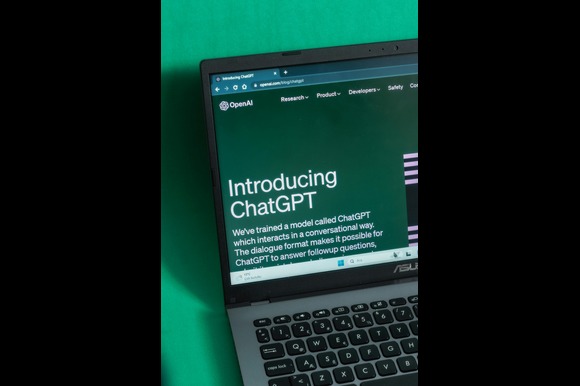OpenAI has entered into a massive $38bn (£29bn) contract with Amazon, granting it access to the tech giant’s cloud computing infrastructure through Amazon Web Services (AWS). The move is the latest in a series of high-value deals by the artificial intelligence start-up, which is racing to secure the vast computing power required to advance its cutting-edge models.
In 2025 alone, the ChatGPT creator has signed partnerships worth more than $1 trillion combined with Oracle, Broadcom, AMD, and Nvidia. This latest seven-year agreement with Amazon marks a strategic diversification of OpenAI’s partnerships and significantly reduces its reliance on Microsoft, its longtime backer.
Under the terms of the new deal, OpenAI will gain direct access to Nvidia graphics processing units (GPUs) hosted on AWS, allowing the company to train its frontier artificial intelligence models at greater scale and speed.
The announcement comes shortly after OpenAI underwent a major organisational restructuring, transitioning away from its previous non-profit model and redefining its relationship with Microsoft to give it greater operational and financial independence.
“Scaling frontier AI requires massive, reliable compute,” said Sam Altman, OpenAI’s co-founder and CEO. “Our partnership with AWS strengthens the broad compute ecosystem that will power this next era and bring advanced AI to everyone.”
The deal underscores the skyrocketing demand for computing power driven by the global AI boom — and OpenAI’s aggressive push to secure enough hardware and infrastructure to stay ahead in the race.
For years, OpenAI relied heavily on Microsoft’s Azure cloud services under an exclusive agreement that lasted until early 2025. However, that arrangement was loosened earlier this year, enabling OpenAI to pursue partnerships with other cloud providers.
The new collaboration with Amazon marks the first time OpenAI has signed a direct cloud deal with AWS, representing a significant step in its shift toward a multi-cloud strategy.
“The deal with AWS shows that OpenAI considers its path to leadership to be paved with access to as much computing power as it can get its hands on,” said Kim Forrest, Chief Investment Officer at Bokeh Capital Partners. She added that Microsoft’s reduced control stake in OpenAI has opened the door to new relationships with “near competitors” to its main investor.
Despite its dominance in the AI sector, OpenAI continues to operate at a loss, with Microsoft’s recent financial disclosures revealing that OpenAI lost $12bn in the last quarter alone as it pours resources into AI research and infrastructure.
The financial markets responded swiftly to the announcement. Amazon’s stock surged to an all-time high on Monday, adding $140bn (£106bn) to the company’s market valuation.
“AWS is uniquely positioned to support OpenAI’s vast AI workloads,” said Matt Garman, CEO of AWS, in a statement celebrating the partnership.
The deal adds to a complex web of interlocking investments among major AI and tech firms, many of which are buying stakes or signing supply agreements with one another. This growing network of billion-dollar arrangements has already begun to draw regulatory scrutiny worldwide.
OpenAI’s unprecedented run of partnerships has sparked debate over whether the industry may be entering an AI investment bubble.
In a recent interview with the BBC, Sam Altman acknowledged the extraordinary scale of current financing activity: “Yes, the investment loans are unprecedented,” he said. “But it’s also unprecedented for companies to be growing revenue this fast.”
However, major financial institutions have issued cautionary notes. The Bank of England, the International Monetary Fund (IMF), and JP Morgan CEO Jamie Dimon have all warned that the “level of uncertainty should be higher in most people’s minds,” given the speed and scale of AI-related investment.
The partnership with Amazon not only cements OpenAI’s position at the centre of the AI ecosystem but also highlights how access to computing infrastructure — rather than data or algorithms — has become the most critical resource in the global race to dominate artificial intelligence.






